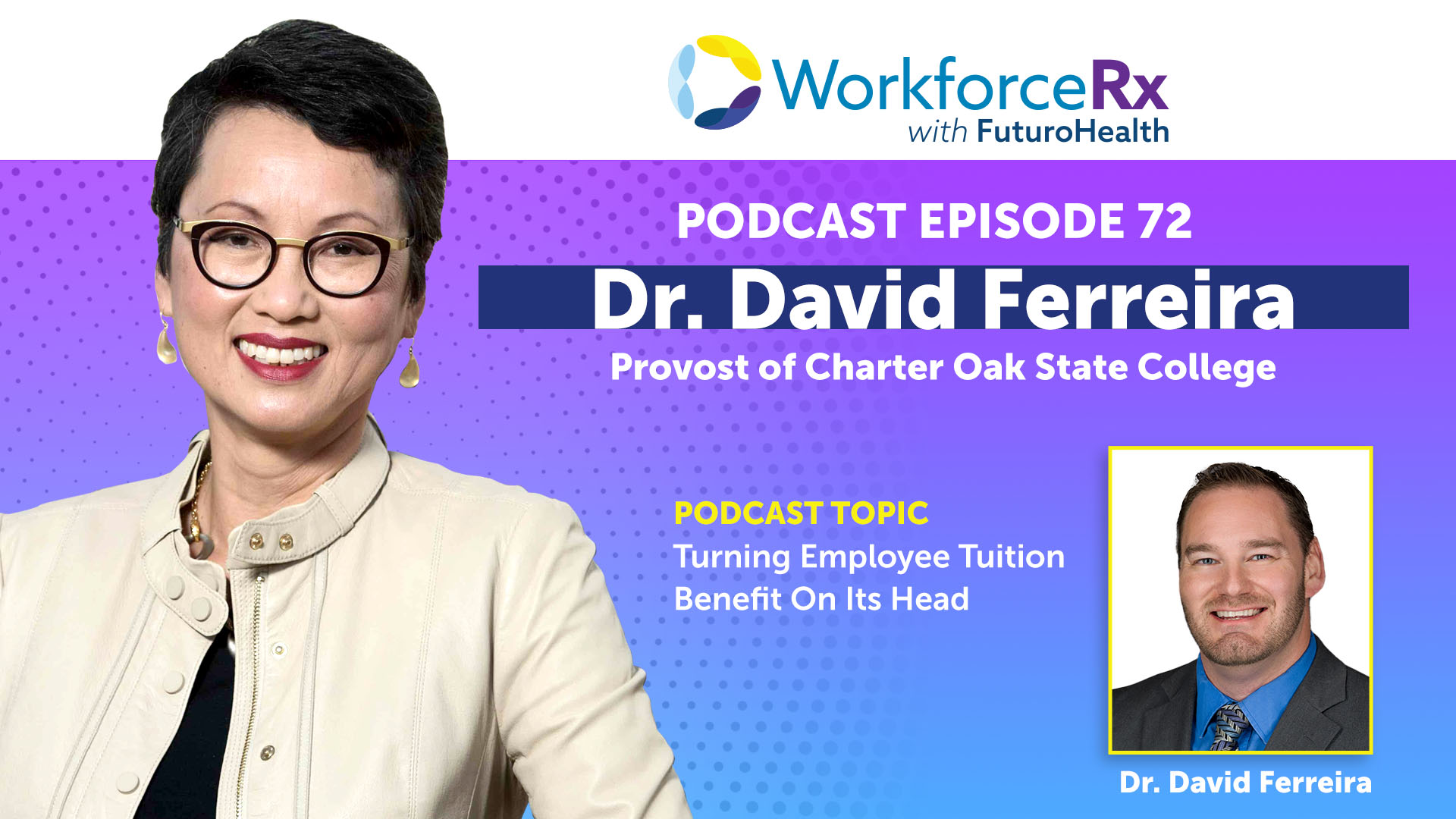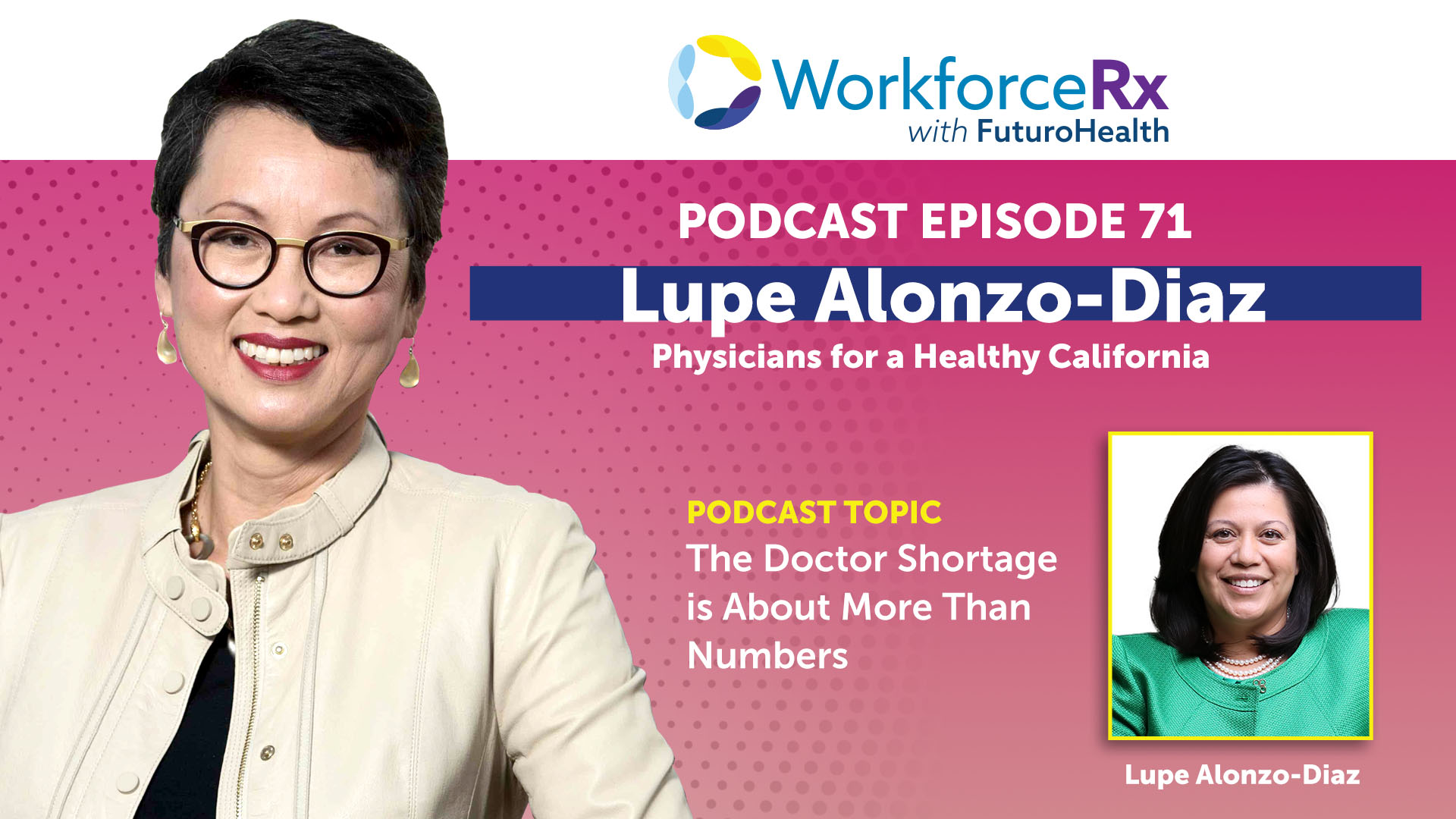Although most US employers offer some form of tuition assistance, it’s estimated that less than 5% of employees use the benefit. There are several reasons for this, but according to Dr. David Ferreira, provost of Charter Oak State College, paying the upfront cost of tuition is high on the list. “Fifty-seven percent of Americans have less than $1,000 in their savings account. They cannot commit to an upfront tuition cost especially if they’re living paycheck to paycheck,” he tells Futuro Health CEO Van Ton-Quinlivan. Inspired by an idea outlined in Van’s book WorkforceRx: Agile and Inclusive Strategies for Employers, Educators and Workers in Unsettled Times, Ferreira and colleagues decided to turn the traditional tuition reimbursement model on its head and adopt a disbursement model instead in which employers pay the upfront cost and get reimbursed through a federal tax credit for employee tuition benefits. He calls it a ‘win-win-win’ approach. “There’s no money out of pocket for the employee, there’s no cost on the employer side because they’ll be reimbursed, and Charter Oak is going to get more students.” In working to sign-up employers as the new Charter Invest program rolls out, Ferreira is also highlighting that it will help companies with the important goals of employee retention and diversifying their workforce. Get all the details, learn about the program’s ‘all you can eat’ design, and find out how employers are reacting to the idea in this eye-opening conversation.
Continue readingLupe Alonzo-Diaz, Physicians for a Healthy California: The Doctor Shortage Is About More Than Numbers
Like all states, California is facing a shortage of physicians — in its case a gap of 10,500 by the end of the decade — but today’s WorkforceRx guest says the definition of shortage needs to go beyond just numbers to include their practice location and cultural diversity. “Oftentimes, we don’t have enough access to physicians in particular areas or to culturally dynamic physicians,” says Lupe Alonzo-Diaz, president and CEO of Physicians for a Healthy California. As she explains to Futuro Health CEO Van Ton-Quinlivan, PHC tackles the issue by expanding physician training opportunities in underserved areas and by incentivizing early career physicians and dentists to accept Medicaid patients through loan forgiveness. “Those physicians come from geographically underserved communities. They also speak a second language and they’re committed to staying in those communities after they finish their service obligation.” This engaging conversation also explores addressing social determinants of health, trends in team-based care and previews a new report on how physicians who are women of color fared during the pandemic. “Women physicians of color are such a key core component to how we deliver culturally dynamic quality care and we need them to stay in their profession and continue to advance.”
Continue reading

